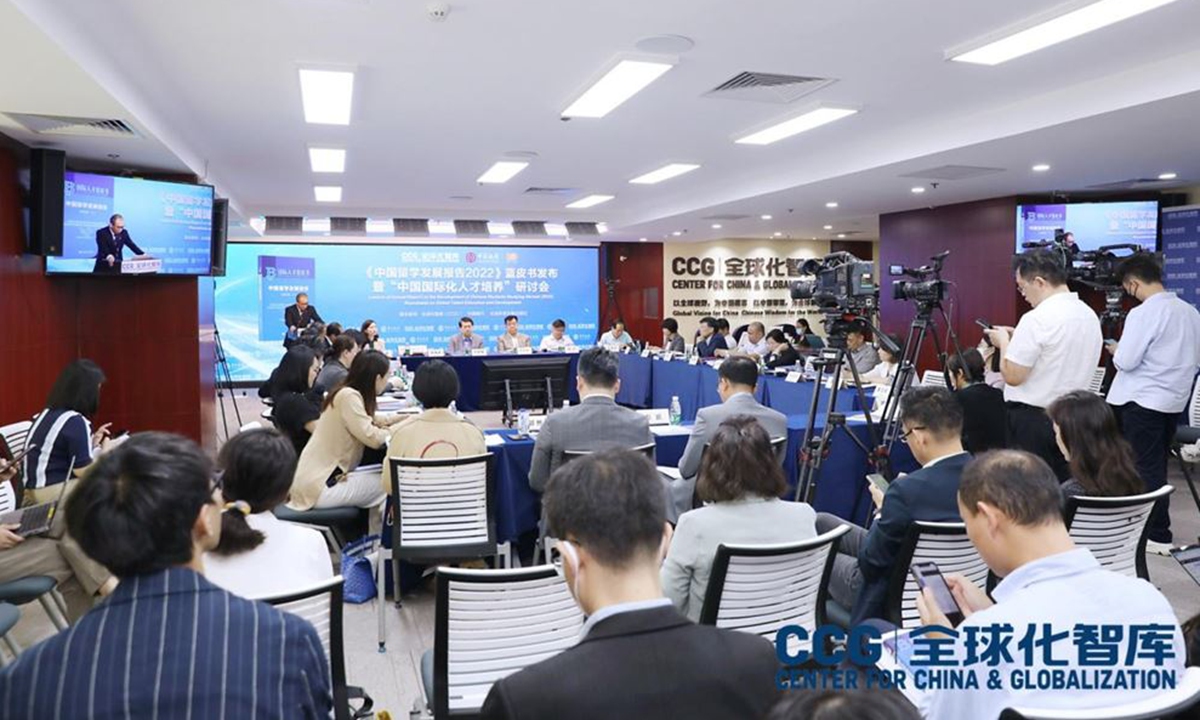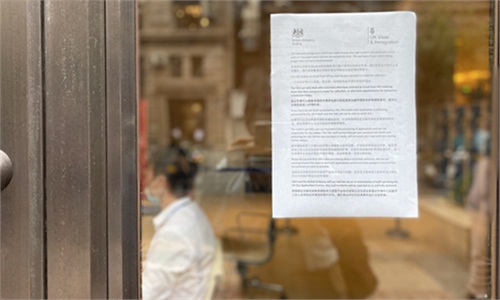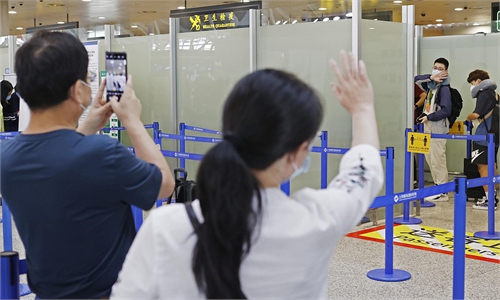
Photo: Courtesy of Center for China and Globalization
Chinese students may choose to study in European and Asian countries instead of the US or Australia in the future due to geopolitical factors, said a report released by a Chinese think tank on Wednesday, which also noted that the number of overseas Chinese students coming back to China after graduation will witness a continuous increase.
The annual report was published by the Center for China and Globalization (CCG), a Beijing-based think tank, with a theme on the development of Chinese students who study abroad, which analyzes the scale, study destinations and other aspects of recent graduates.
The report pointed out that while the US and Australia are still among the top five destinations for Chinese students, the number of Chinese students in both countries has decreased due to the worsening China-US relations as well as trade and geopolitical disputes between China and Australia.
According to the report, the number of Chinese students in the US in the 2020-2021 academic year saw the first decline in 10 years, falling 14.6 percent from 2019-2020. The number of Chinese students in Australia decreased for two years, with a drop of 11.9 percent in 2021 and 9.9 percent in 2020.
The report said that more Chinese students may switch to countries in Europe and Asia where the study environments and visa policies are friendlier. "While European countries like France and Germany continued to introduce policies to attract or make it more convenient for Chinese students to study in their countries, Asian countries like Japan, South Korea and Singapore also became more favorable for their geographical proximity, similar cultural attributes and relatively affordable tuition," read the report.
As overseas Chinese students prefer studying STEM (science, technology, engineering, and math) and commerce, the report warned that overseas students may face limitations in some sensitive key technology subjects in some of the Five Eyes countries.
The US Senate passed the Innovation and Competition Act in June 2021 to strengthen censorship of China-participating projects in artificial intelligence, semiconductors, quantum computing and so on. Five months later, Australia introduced the Blueprint for Critical Technologies to enhance protections for 63 key technologies.
Besides the possible restrictions on international students in sensitive areas, experts also pointed out countries like the US have seen fewer unofficial exchanges with China in recent years.
Zhou Mansheng, former deputy director of the Education Development Research Center at the Ministry of Education, noted at Wednesday's report conference that some exchange projects between US and Chinese scholars, which have lasted for a long time, were suspended in recent years, calling for the resumption and promotion of such exchanges and communication.
The report also highlighted that the "return rate," which refers to the percentage of Chinese students coming back to China after graduation, has largely increased. This is a result of China's rapid economic development and talent attraction policies, and it is also influenced by the complex international situation including changing of foreign countries' visa policies, it said.
According to the National Bureau of Statistics of China, the return rate in 2019 was 82.5 percent, a huge increase compared with 38.5 percent in 2008.
Despite the COVID-19 and unprecedented change in international relations, China remains the top source of international students, said Zhang Ning, former deputy secretary general of the China Scholarship Council, at the conference.
Many of these Chinese students choose to come back to China with a more confident and rational attitude. With an international vision, they can have a more objective view of both China and the world, which helps them to better understand China's strengths as well as its weaknesses, said Zhang.




